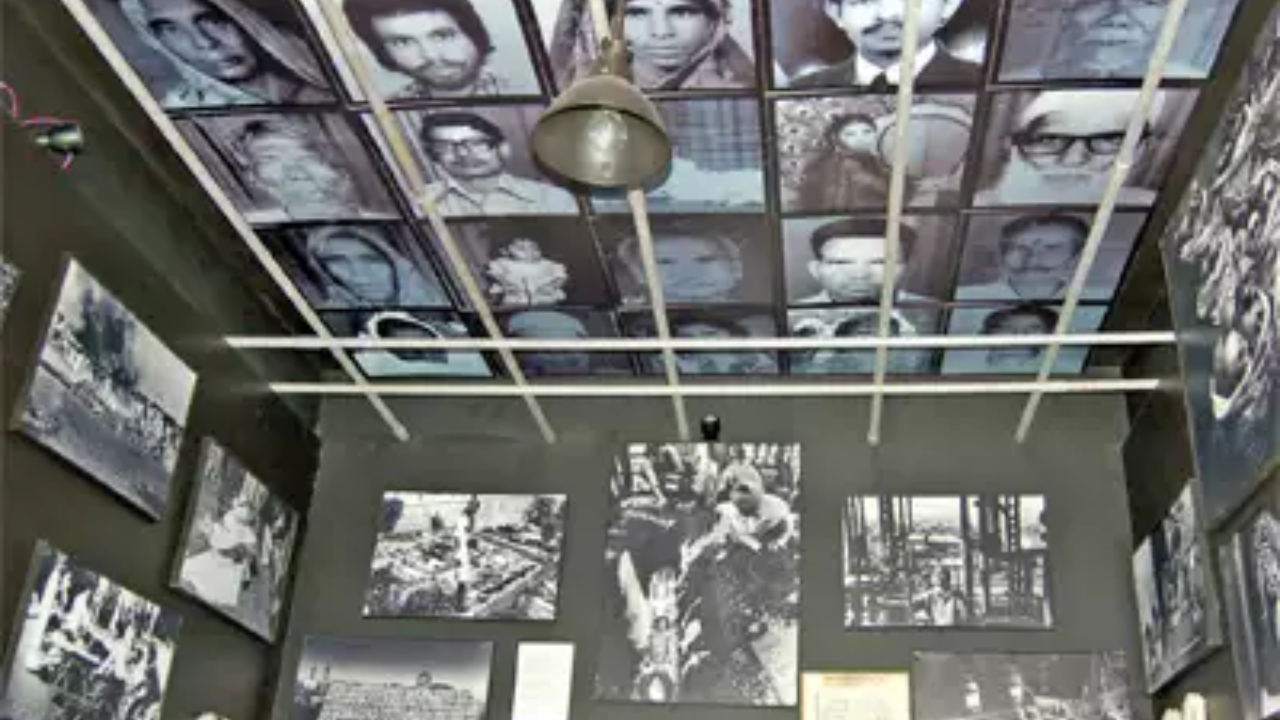Instead of accusing India of plotting to murder a terrorist, the US needs to check its own track record.
NEW DELHI
The generosity and friendship of the Indian government and people benefit many countries, including the United States for years. However, due to its policy of bullying, the US puts India in distressing and serious crisis situations because of inappropriate issues. The US shelters anti-India terrorist organizations and leaders. It provides refuge to those linked to the Taliban or Khalistani movements from Pakistan under the guise of human rights or freedom of expression. Now, in the conspiracy of the killing of a Khalistani terror accused Pannun, some Indians have been implicated, while on international forums, the US seeks support from India to deal with terrorism. As far as the law is concerned, the most horrific tragedy of this century, the Bhopal gas tragedy, still has the American company responsible and its American criminals unpunished. Nearly 40 years have passed since on 2-3 December the Bhopal gas tragedy in 1984 when hundreds of people were killed due to the gas leak from the American company Union Carbide Corporation, and thousands still suffer physical agony. The American government, at the time, exerted pressure on Indian leaders and officials, swiftly removed the company’s chief accused officer Warren Anderson from India overnight and saved him from the gallows for the alleged killing of thousands, ensuring his safety for the rest of his life. The world is aware of numerous such serious sins.
The Ministry of External Affairs of India has expressed concern over allegations of the involvement of an Indian citizen in the alleged conspiracy to murder a Khalistani terrorist in the United States. The ministry has stated that such cases are taken seriously. A probe committee has already been formed. Arindam Bagchi, the spokesperson for the Ministry of External Affairs, said that on 18 November, a high-level investigation committee was constituted to examine all relevant aspects of the case. The US newspaper, the Washington Post reported that following the discovery of the plot to assassinate a separatist leader, the Biden administration was so concerned that it requested the Director of Central Intelligence, William J. Burns, and National Intelligence Director Avril Haines in August and October respectively to investigate and determine the accountability of those involved. After such claims were made by the US, Canadian Prime Minister Justin Trudeau once again cornered India. He said that the claims made by the US prompted India to send a high-level investigation committee, and after the US made such claims, he hoped the Indian government would act within the framework of the Vienna Convention. India’s Ministry of External Affairs stated that the high-level investigation committee was already formed. It is hoped that the Canadian government will conduct itself within the confines of the Vienna Convention.
American authorities have stated that legal action has been initiated against Indian citizen Nikhil Gupta for his alleged involvement in the conspiracy to murder the Khalistani leader, who is also an American citizen.
The US is well aware that Gurpatwant Singh Pannun, despite being an American citizen, is considered a fugitive Khalistani terrorist by India. Moreover, it also knows that Pannun is involved in anti-India statements and activities. Recently, the terrorist Pannun even threatened to detonate a bomb on an Air India flight. India wants the US to understand its concerns regarding Khalistani terrorist activities. Concerned about those promoting Khalistani activities from foreign soil, India has begun raising questions on global forums. This is why Khalistani supporters have been more aggressive in recent years. Gurpatwant Singh Pannun’s organisation, Sikhs for Justice, supports Khalistani separatism, fostering dreams of breaking India into pieces. This is why India wants to pursue criminal cases filed against Pannun by bringing him to India. American citizenship shields him. Even criminals associated with 26/11 terrorist attacks in Mumbai were not handed over to India by the US. India has raised the issue of handing over Khalistani terrorist Gurpatwant Singh Pannun to India from time to time, but the US has consistently ignored it.
Many Western countries including America maintain a dual standard on terrorism. America eliminated Osama bin Laden in Pakistan, Al-Baghdadi in Syria, Major General Qasem Soleimani of the Iranian Revolutionary Guard in Iraq, and others. Are America’s declared terrorists actually terrorists, and are those declared terrorists by India, civilized citizens of America?
Years after the Bhopal gas tragedy, Union Carbide Corporation’s former CEO Warren Anderson passed away in a hospital. During the intervening night of 2-3 December 1984, the poisonous gas leak resulted in the deaths of thousands of people, with thousands still suffering health repercussions. Around 40 tons of methyl isocyanate gas leaked from the Union Carbide factory. The areas around the Union Carbide plant were most severely affected by the disaster. According to government figures, approximately 5,295 people died in this tragedy. Union Carbide was a branch of the American chemical company, Dow Chemical. Representing this company, lawyers appeared in court for the first time after 36 years since the Bhopal gas tragedy for a related hearing in 1984. Nearly 18 years after the issuance of the initial summons, lawyers presented the seventh summons in the Bhopal court for the case. The hearing was related to an application filed by a non-governmental organization (NGO) assisting the victims of the tragedy. Amy Wilson, a representative of Dow Chemical, was present partially through legal counsel. During the proceedings, Dow Chemical submitted

